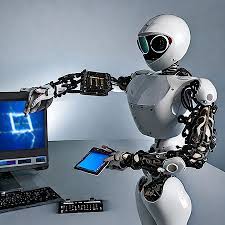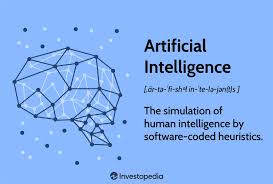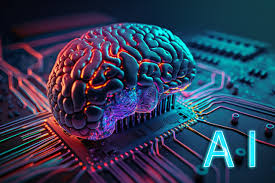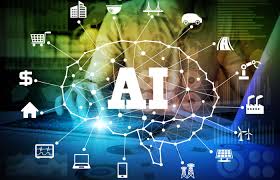Modern technology have influenced a lot of areas and aspects of life and one a interesting area I perceive is the usage of the artificial intelligence based keyboards. These advanced instruments make use of good game theory to augment typing, increase composition precision, and aid in connection. Composing an invite to a party or writing an email, be it short or long, or even writing a book, is an area whereby you will realize that the use of AI enhanced keyboards can greatly help. Finding out how far these AI enabled keyboards have come, how they work, what they can do for the user and future developments this article looks at how these keyboards are transforming the written word.
The Evolution of Keyboards
There has been a drastic transformation in the keyboards ever since they were invented. A mechanical keyboard originated as a set of elementary equipment whose primary purpose was to type letters, numbers and symbols. But as soon as technology evolved, the keyboards also became rather more functional. The most innovation that occurred in the 1980s was the introduction of the word processor that allowed individuals to type at higher accuracy and speed. That was when spell-checking and basic predictive text capabilities came next so that people could detect mistakes and type faster. Next jump witnessed was with the advent of smart phones and the touch screen technology. First, portable devices developed virtual keyboards where some of the features include predictive text, auto correct and swipe to type. However, all these features enhanced the usability of the advanced cell phone although the alterations introduced were still based on rules and not an independent individual’s behavioural pattern.
Enter artificial intelligence. AI advancements, especially, machine learning, and Natural Language Processing (NLP) applied to the creation of static, non-changing keyboard, further developing it to dynamic and flexible system. Now, there are keyboards with the incorporation of AI to learn the user, his or her writing style, and choose the best suggestion based on the context as well as enhance the speed of typing and the number of correct inputs.
How AI-Powered Keyboards Work
The artificial intelligence keyboards have been developed with the help of certain methods of machine learning algorithms, NLP, and also utilizing deep learning methods. Here’s a breakdown of how they function:
Autocorrect and Predictive text
Typing assistant apps are not only enhanced with word-level correction but also with an ability of suggesting whole statements or words depending on context. This is not limited to mere word prediction where the AI learns the likelihood of the next word a user is likely to type, but goes a notch higher to help the user complete an entire idea he/she was typing.

Multilingual Support
As it has emerged, most AI-powered keyboards are developed with multilingual capability where the users do not have to make arrangements manually to shift to another language. This feature is especially helpful in cases when the users switch between two or more languages often.
Benefits of AI-Powered Keyboards
That way the use of artificial intelligence in keyboards has produced several advantages to the users. From increased efficiency to personalized writing assistance, these tools offer numerous advantages:From increased efficiency to personalized writing assistance, these tools offer numerous advantages:

Improved Quality of Typing speed and efficacy
Another advantage of AI keyboards is that typing speed is increases drastically. Smart options such as predictive text and auto-completion minimize the number of characters a user types in while the works keyboard the rest of the sentence. Finally, the keyboard of course has the ability to learn whole strings and thus the typing process gets even faster.
Improved Writing Accuracy
Some of the added benefits that comes with the use of the keyboards that are controlled by artificial intelligence are that there are reduced chances of making mistakes due to enhanced auto-correction. In contrast to the regular autocorrect which is based on the rules, the function that uses artificial intelligence focuses on the style of the user and typical mistakes that the person makes, as well as often used and preferred words. This results in less stress from annoying slips, for instance, incorrect spell check, or unnoticed grammatical errors

Personalized Suggestions
Stepping back to see the bigger picture, it’s essential to understand that AI-powered keyboards do not fit a one size mold. However, they are trained from typing habits of every profile that is connected to the program, the words that they use most often, and the way they structure sentences. It works in such a way that if a user spends most of his time typing, then the keyboard adaptances itself to the every keyboard strategies of the individual.
Language Learning and Multilingualism
Essentially, when users are learning a new language, the use of intelligent keyboards may be beneficial to them. These types of keyboards suggest correction in real time, words using predictive text, and even translated words hence assisting the users to boost the fluency of the particular language being typed. Secondly, the use of multilingual support facilitates quick language translation hence enabling individuals to communicate irrespective of the type of context language used.AL functioning will be presented as follows:
Accessibility for All Users
The advantages of AI keyboards can be particularly enjoyed by people with disability. For example, people with such disabilities as ability to move from one place to another can benefit from voice to text styles which are supported by artificial intelligence than before. In addition, first time users with learning disabilities like dyslexia are capable of utilizing advanced error correction and suggesting an improved design for the structure of the sentences.

Challenges and Ethical Considerations
In as much as the AI-powered keyboards are significant advantages, they present some drawbacks and ethical issues that have to be discussed.
Data Privacy Concerns
Many AI keyboard interfaces depend on cloud-based architectures to perform language processing the most of the time. This causes a concern in the privacy and security of data shared by users since the data may be hosted on servers outside the user’s control. Although many developers assert that this information is anonymous, users should continue to be cautious with its exploitation or the leakage of such information.
Overreliance on AI
Some people using these smart keyboards, they may end up being fully dependent on the intelligent Assistance, which they offer. This could lead to the general مع σημείωση downturn or deterioration of writing abilities and proficiency where people will be able to write sentences or proofread them without the help of AI. These keyboards are very useful when it comes to typing but it is necessary not to abuse their usage while typing and at the same time try to strengthen one’s language

Algorithmic Bias
That is quite a big limitation; for an AI system is only as good as the data it was trained on. Hence if the training data is biased then the AI keyboard displays the same bias when making the suggestions. This could reduce the effectiveness of the translation and lead to such issues as low accuracy of translated material, improper and abusive language used in the translations, or even support of certain sterotypes. This is something that developers need to make sure AI-powered keyboard are trained on diverse data sets to prevent such problems.









